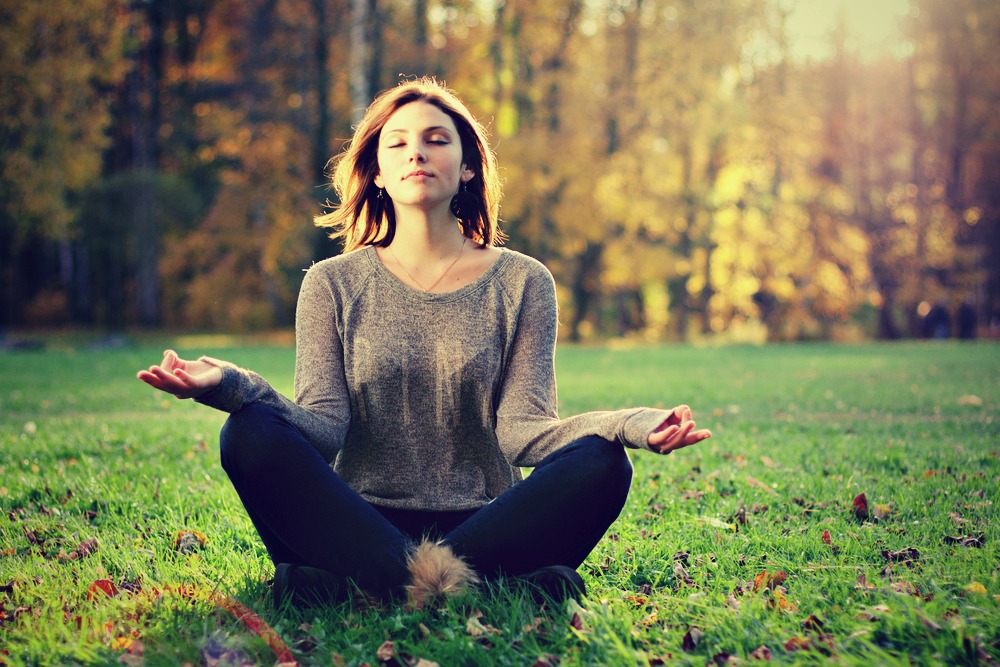We’re still learning what there is to know about mindfulness. One thing we know with absolute certainty is that it’s stellar for mental health. What we haven’t so sure about is how it actually works.
Recently, Carnegie Mellon University’s J David Creswell, whose work on the effects of mindfulness meditation has been at the cutting edge of the field, has provided the first evidence-based biological explanation of how mindfulness training works to reduce and affect mental and physical health. Here’s what they’ve found:
When people experience stress, there is decreased activity in the prefrontal cortex, the area of the brain that looks after conscious thinking and planning.
At the same time, activity is increased in the amygdala, hypothalamus and anterior cingulate cortex, the areas of the brain that initiate the body’s stress response.
Research seems to indicate that the effectiveness of mindfulness lies in the way it reverses these responses during stress. It increases activity in the pre-frontal cortex and decreases the physiological stress response.
Here is where the link between mental health and physical health comes in. We know that when the body’s stress response is repeatedly activated, this increases the risk of diseases that are made worse by stress, such as depression, anxiety, HIV and heart disease.
Mindfulness reduces the subjective experience of stress. When this happens, the physiological stress response will also be turned down – less of the neurochemicals that are triggered by stress surging through the body and doing damage.
The research around mindfulness is exploding and we are still unlocking its secrets. We probably will be for some time. Without a doubt though, there are a wealth of benefits to be gained from making it part of a daily routine. Five minutes a day will make a difference, but most studies seem to suggest the greatest benefit comes with at least 25-30 minutes a day, though the more the better. For a more detailed explanation of the benefits of mindfulness, and how to practice it, see here.



By the way, after reading this article, I felt more relaxed. I just wonder if mindfulness a way to meditate or a way of thinking in life and work?
Mindfulness is a form of meditation, but after a while it could very well change the way you start to think about things and react or respond to the things that happen in your life.
Question! My husband died 12 years ago of Bowel Cancer aged 50. I was aged 47 and have 3 sons.
At the time of their fathers death they where 20, 17 and 15. Whilst the younger 2 Seemed to have accepted the death and moved forward my eldest son seems to be trapped in grief, regret and guilt and has suffered greatly over the past 12 years. He tells me that he wants to move forward with his life but has soo much hurt and can’t seem to let go. He has suffered ?? bi polar and personality disorder since his father died but this is stable at the moment as he has had lots of coucelling. How can I his mother help him move forward . ??
It’s sounds as though your son is getting the support he needs to move forward (through counselling and through you) and he sounds committed to doing this, which is the most important part. As his mother, the best thing you can do is to be there and accept him where he is at. It sounds as though you are a loving, supportive, available presence for him and you can’t don’t underestimate the power of that. The main thing is to let him set the pace and not to have any expectations of him that he’s not ready for. Just keep loving him and being available for him. It sounds as though you are doing exactly what he needs. Make sure you are getting the support you need too. You’ll be better for the people you love if you’re strong and supported yourself. Your family have been through a lot but it sounds like you have been the loving steady presence your family needs. They are lucky to have you.
Yes I Agee. Having suffered from anxiety for over 50 yrs I would encourage him to take a course on mindfulness it has done more for me to change my life then medication and talk therapy.